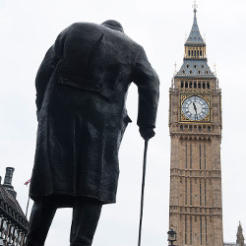Charity sector bodies have urged MPs to include "better safeguards" to go with the proposed new powers for the Charity Commission, in evidence submitted to the Bill Committee yesterday.
Evidence submitted by a number of sector bodies, including the Directory of Social Change, Acevo, Bond, Association of Charitable Foundations, Charity Finance Group and law firm BWB, is calling for “better safeguards and routes of redress in relation to the proposed power for the Charity Commission to give official warnings to charities”.
Clause 1, on official warnings by the Commission, was ordered to stand part of the Bill yesterday, despite shadow charities minister Anna Turley calling in Parliament for more limits the proposed power.
Turley yesterday submitted a number of amendments to the Charities (Protection and Social Investment) Bill, which would mean the Commission would have to wait at least 14 days between contacting the charity about its intention to issue a warning and actually doing so. She also said warnings should carry a right of appeal to the Charity Tribunal. The amendments were later withdrawn.
The group have warned that there are still a number of clauses in the Bill that “would seriously damage charity independence”.
Jay Kennedy, director of policy and research at the DSC, said that the new power would make the Charity Commission “judge, jury and executioner for charity trustees”.
He said: “The proposed power for the Charity Commission to disqualify trustees is based on extremely broad tests and poses a major threat to the independence of charities.
"We’re in danger of sleepwalking through a tectonic shift in power between the state and civil society. The discretion afforded by the language in the Bill is so wide, it essentially means the Commission could disqualify anybody for practically any reason from being a charity trustee, regardless of whether that person had been convicted of any crime or found guilty of wrongdoing.
“Put bluntly this new power would make the Charity Commission judge, jury and executioner for charity trustees. It is simply not proportionate or desirable in a free and liberal society. We urge all MPs, not just those on the Bill Committee, to scrutinise this legislation and to support amendments to the Bill that would curb the Commission’s latitude and protect charity independence. It is an issue which affects hundreds of charities and thousands of trustees working in every parliamentary constituency in the country.”
In the evidence, the sector bodies state that the Commission already has significant powers, and expressed concerns that drafted provisions in clause 1 lack adequate safeguards.
It also proposed a notice of warning of at least 28 days, double the amount that Turley had suggested and then withdrawn.
The evidence also stated on clause 11 that if the Commission has power to disqualify a person from being a trustee, safeguards should be provided to prevent it being used inappropriately.
Commission should be able to wind up charities, MPs agree
MPs agreed to a power that will allow charities to direct the winding up of a charity.
Clause 7 of the Charities (Protection and Social Investment) Bill, would enable the Charity Commission, in the context of a statutory inquiry, to direct that “the empty shell of a charity” be wound up. This would be an additional power to its current power of transferring any remaining assets of the charity under inquiry to another charity with the same charitable purposes.
Rob Wilson said in the committee hearing: “The power to direct winding up will only be available in the context of a statutory inquiry and where the commission is satisfied that there is misconduct, mismanagement or risk to charity property.
"The commission must be satisfied that the charity does not operate or that its charitable purposes could be more effectively promoted if it were to cease to operate and that the exercise of this power is “expedient in the public interest”.
The Commission would be required to publish details of a proposed winding-up order and to invite representations from any interested party, and it must take into account any representations it receives before making the order to direct winding up.
In most cases, the Commission will be expected to allow 60 days for the making of representations before it can make the order.
Anna Turley, shadow minister for civil society, said on this point that she fears that a “burden of decision making and judgment is being placed on the Charity Commission”.
The committee also agreed to clause 6, which gives the power to direct specified action not to be taken, and clause 8, the power to direct property to be applied to another charity, to stand part of the bill.
Clause 4, the power to remove trustees etc following an inquiry, and clause 5, the power to remove disqualified trustees, were also agreed upon.









